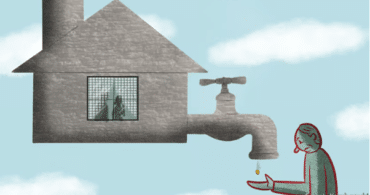Landlord Advice on Moving Out Self-Isolating Tenants
The government has recently made it clear as to how landlords and letting agents should deal with the issue of self-isolating tenants who are due to move out of a property. Junior Housing Minister Eddie Hughes has said that accommodation providers are ‘strongly urged’ to be flexible when it comes to extending tenancies and delaying moving tenants out if they are isolating due to COVID-19.
The government has recently made it clear as to how landlords and letting agents should deal with the issue of self-isolating tenants who are due to move out of a property. Junior Housing Minister Eddie Hughes has said that accommodation providers are ‘strongly urged’ to be flexible when it comes to extending tenancies and delaying moving tenants out if they are isolating due to COVID-19.
The question of how to handle with self-isolating tenants who are due to move out of a rental property was posed to the government following a BBC news report. The report concerned a group of students who were preparing to leave their rented accommodation, when one of them tested positive for COVID-19. This meant that the student in question, and her three housemates, were all legally obliged to self-isolate.
Students broke the rules
As their tenancy was due to come to an end, the students made the decision to break the rules and move back home, despite the self-isolation requirement. However, their motivation was money-orientated, with their landlord threatening to charge them a month’s rent and a 30-day cancellation notice fee, as well as covering the cost of putting up the incoming tenants whilst they waited for the property to become available, which would have totalled thousands.
A government spokesperson commented to the BBC that students who are required to self-isolate should seek to put off their move with support from their university, adding: “We strongly urge accommodation providers and private landlords to come to amicable agreements with students, and to change move dates to ensure students are able to complete their self-isolation periods.”
“Landlords should respect isolation periods”
Speaking to LandlordZONE, the National Residential Landlords Association recommends that landlords should respect the required isolation period during which households should not move, saying: “We also encourage landlords to show as much flexibility as possible to support their tenants and help efforts to halt the spread of the virus.”
Under The Health Protection (Coronavirus, Restrictions) (Self-Isolation) (England) Regulations 2020 however, if someone is legally obliged to move, they are allowed to do so even if they are self-isolating.
Reducing pressure for landlords courtesy of guaranteed rent
From burgeoning legislation to ever-changing COVID-related rules, there is plenty feel burdened by as a landlord. But ensuring your rent is paid on time need not factor as one of your headaches.
Offloading your buy-to-let burdens, including unpaid rent and the cost of void periods, is simple with homes2let. Not only do we offer a full property management service with no fees involved, we also offer an exclusive guaranteed rent scheme.
The scheme involves letting your property to local authority tenants, with your rent guaranteed every month and paid by standing order, even when your property is untenanted. It is a fully comprehensive service, with no fees, legal costs, inventory charges or marketing costs to cover. It’s all included.
To discover how our guaranteed rent scheme could remove all your burdens as a landlord, you are welcome to get in touch with our helpful team.
Related Insights

Japanese Knotweed: What Every Landlord Needs to Know
Everyone, including landlords, has a responsibility to prevent harmful, invasive plants and non-native species from spreading and causing damage to the environment and threatening livestock. This includes the infamous Japanese knotweed. Here's what the government says should be done to control and dispose of plants that have the potential to damage the environment.

Green Homes Grant Axed
The government’s Green Homes Grant has this month been axed just six months after its launch. The scheme was introduced to help private homeowners and landlords give their properties an eco-friendly upgrade, whilst creating work for tradespeople. But it closed on 1 April onwards to new applications.

The Shift in the UK Buy-to-Let Market: Navigating Landlords’ Sales Surge and Rising Rents
The UK real estate landscape is witnessing a significant transformation, particularly evident in the buy-to-let sector. The recent trend of landlords divesting their properties is reshaping the rental market across Great Britain, with a notable impact in Scotland. This article delves into the multifaceted reasons behind this shift, the consequent effects on the housing market, and the future outlook for investors and tenants alike.







